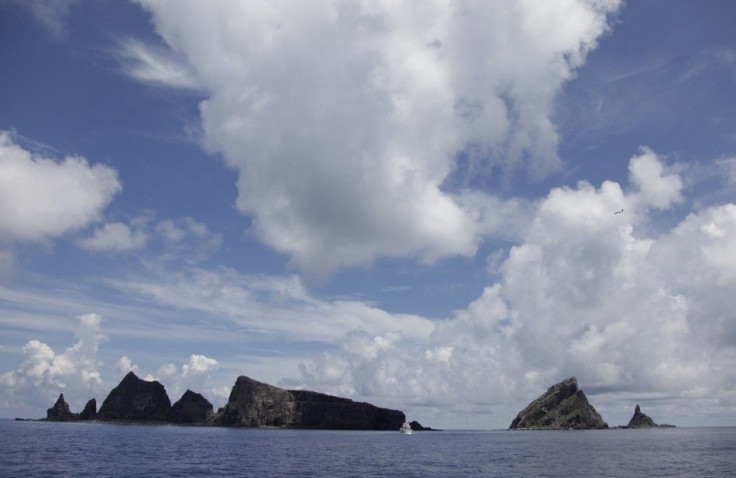Beijing Restaurant Refuses To Serve Japanese, Filipinos, Vietnamese Over Island Conflicts

Tensions between Japan and China continue to simmer as the two governments engage in a tug-of-war over the disputed Diaoyu/Senkaku Islands. Now, a few months after Chinese rioted against Japanese businesses, citizens are still taking the matter into their own hands.
The BBC reported that a Beijing restaurant is refusing to serve customers from any China's neighbors with which it has offshore territorial disputes, including, Japan, Vietnam and the Philippines. The Beijing Snacks restaurant posted a notice on its window which read, in both Chinese and English: “This shop does not receive the Japanese, the Philippines [sic], the Vietnamese and dogs."
The sign stirred an outcry from some local residents and online commentary from foreigners living in Beijing, accusing the restaurant of “extremism” and “racism.”
According to the report, an official at the Vietnamese Embassy called the sign “unacceptable” and called for “appropriate action to ensure that all sides respect and protect bilateral friendship.”
The restaurant owner, identified only as Wang, responded to the online complaints by saying he has yet to be asked to remove the sign by any Chinese officials. “This is my own conduct,” he told Agence France-Presse.
The Philippines and Vietnam have long-running disputes with China over islands and undersea claims in the South China Sea, but the controversy over the islands in the East China Sea that China calls the Diaoyus and Japan calls the Senkakus has been the main focus of attention, with the potential to ignite a conflict.
In November, China infuriated its neighbors by issuing new passports that carry watermarked maps of maritime areas that the Philippines, Vietnam and other nations claim. The governments in Hanoi and Manila issued official protests against the passports. But there have been only a few isolated incidents with those nations.
Japan has had a much more volatile relationship with China, which often invokes Tokyo's aggression in the 1930s and '40s. Japan’s Kyodo News estimated that anti-Japanese protests occurred in 125 cities across China last year. Sales within China for Japanese auto company Toyota (NYSE: TM) dropped dramatically during the height of the dispute. Chinese who drive Japanese vehicles have placed bumper stickers on their cars, saying they support China, to avoid vandalism.
Most recently, in early February, Japan accused China of aiming a missile-guidance radar in the direction of a Japanese naval vessel keeping surveillance on the islands and its neighboring waters. This was the latest move in the chess game the two nations are playing as both continue to build up their military presence in the area.
© Copyright IBTimes 2024. All rights reserved.





















